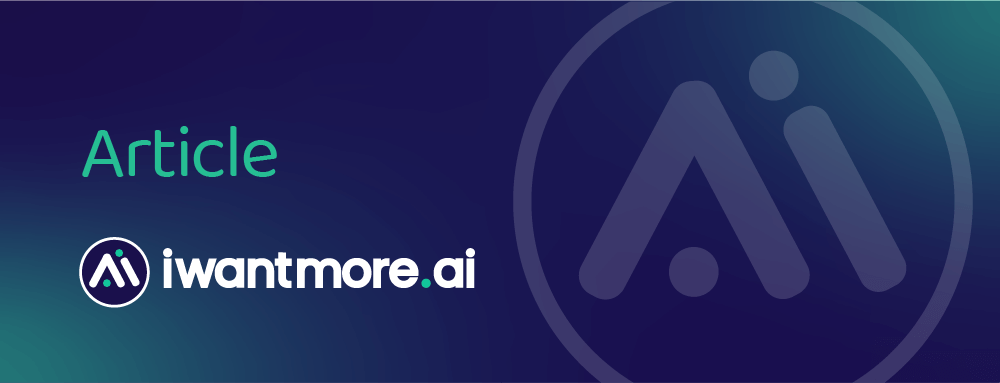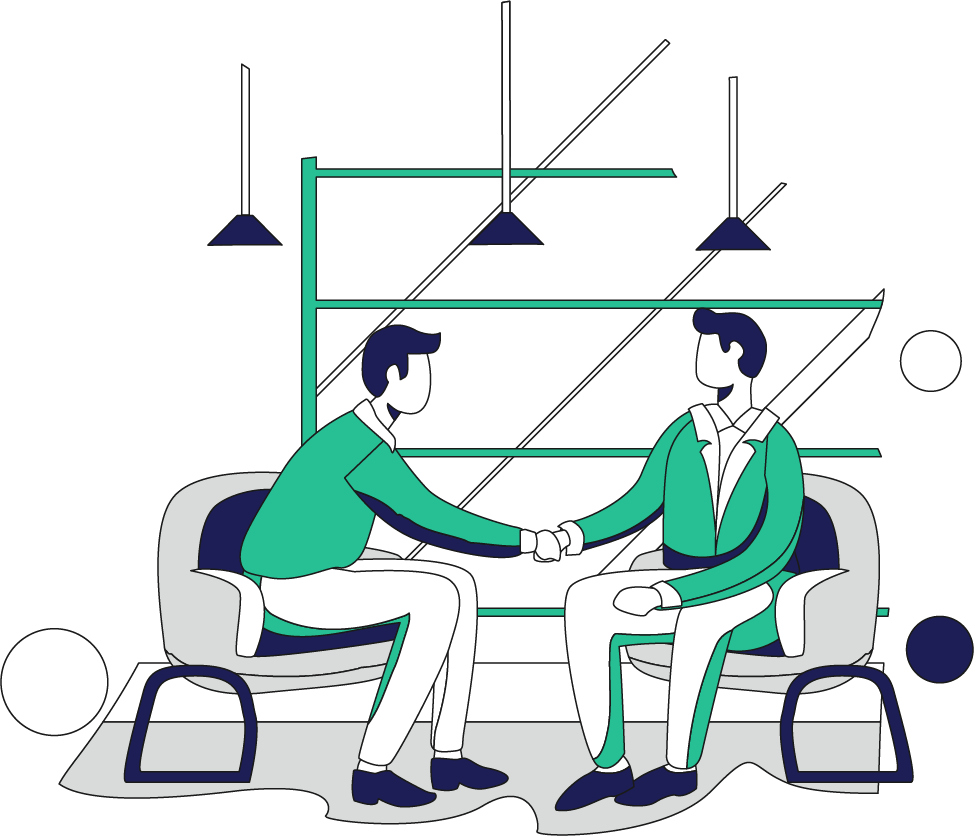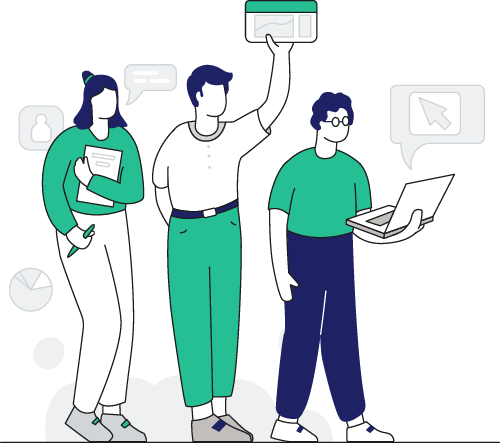
What’s the difference between traditional automation and AI powered agents?
We decided to write this article because many of our clients have shared that they’re confused about the differences between traditional automation and AI-powered agents. Our goal is to provide a straightforward overview that offers a baseline understanding. Whether you’re new to automation or just want to stay ahead of the tech curve, we hope this summary will help clarify the key distinctions.
Why the confusion?
Traditional automation tools like UiPath, Power Automate, and Automation Anywhere have been around for a while, helping businesses streamline repetitive tasks. But now we’re seeing a new wave of automation tech: AI-powered agents that can learn, adapt, and make decisions on their own. Understandably, this shift has led to a lot of questions:
- What exactly can AI agents do that traditional automation can’t?
- When should I use one approach over the other?
- How do I know what it’s doing?
- How do I get started?
This article aims to answer these questions by providing a simple comparison between traditional automation tools and AI agents.
Traditional automation tools
Tools like UiPath and Power Automate excel at automating repetitive, rule-based tasks. They work off predefined rules and workflows, making them predictable and reliable for specific, unchanging processes.
Strengths:
-
Great at structured tasks with clear rules.
-
Highly effective at repetitive activities like data entry, invoice processing, and report generation.
-
Proven track record of improving operational efficiency.
Limitations:
- Limited adaptability: When the process changes, you often have to reconfigure or reprogram the workflow.
- No learning: These systems don’t learn or evolve; they only do what they’ve been explicitly told to do.
- Require human intervention for exception handling and process updates.
AI agents: The next generation of automation
AI agents represent a leap forward. Rather than just following preset workflows, AI agents are designed to perceive their environment, reason based on data, and act autonomously to achieve specified goals. They leverage machine learning, natural language processing, and other AI technologies to operate with agility and intelligence.
Key capabilities of AI agents
- Autonomous decision-making
Can analyse data and identify patterns without explicit programming or human intervention. - Learning and adaptation
Learn from experience, improving performance and tackling new scenarios over time. - Complex problem-solving
Handle challenges involving reasoning, planning, and problem-solving. - Natural language understanding
Understand and respond to human language, enabling more intuitive interactions with users. - Personalisation
Retain past interactions for personalised experiences; can use tools to complete tasks without human help. - Seamless integration
Integrate easily with existing platforms, minimising disruption and lowering adoption barriers.
| Feature | Traditional Automation Tools | AI Agents |
|---|---|---|
| Decision making | Rule-based, predefined workflows | Data-driven, autonomous decision-making |
| Adaptability | Limited, needs reprogramming for new scenarios | Adaptive, learns from experience |
| Complexity | Best for structured, repetitive tasks | Excels at complex, dynamic situations |
| Human intervention | Requires human oversight for exceptions and changes | Operates autonomously with minimal input |
| Learning | No built-in learning capability | Continuously learns and improves |
| Examples | Data entry, invoice processing, report generation | Customer service bots, fraud detection, personalised recommendations |
One major distinction is autonomy. Traditional automation typically requires human oversight for exceptions. AI agents, on the other hand, can learn from experience, make decisions based on historical data, and adapt to unforeseen circumstances – all with minimal human intervention.
Use cases and applications
Traditional automation tools Data entry Invoice processing Report generation System integration Workflow automation
AI agents Customer service chatbots Fraud detection Personalised recommendations Lead nurturing emails
What’s next?
Both traditional automation tools and AI agents have their places in modern businesses. Traditional tools are perfect for straightforward, repetitive tasks. AI agents, however, will shine in dynamic, data-rich environments where the ability to learn, reason, and adapt is crucial.
The next 12 months is going to be really interesting. You can check out the predictions from some of the major players in the industry in this article. As AI technology keeps evolving, expect AI agents to become even more sophisticated and pervasive, transforming how businesses operate and interact with their customers. We may also see hybrid solutions emerge – traditional automation enhanced with AI capabilities, offering the best of both worlds.
The human factor
An important factor in all this is trust and human acceptance of AI acting responsibly to complete the task. While AI agents open up exciting possibilities, they also raise questions about the future of work. As more tasks become automated, workers will need new skills and roles. The emphasis will shift to collaboration between humans and AI agents, ensuring that we harness technology in ways that benefit everyone. A lot of the business leaders that we are speaking to are focused on AI being used as ‘human augmentation’ where possible removing the mundane admin heavy tasks and increasing the time available for their people to focus value add tasks for the business.
In summary
- Traditional automation is rules-based, structured, and highly effective for well-defined tasks.
- AI agents adapt, learn, and operate autonomously, making them well-suited to tackle complex challenges in rapidly changing environments.
Our hope is that this article clarifies the fundamental differences between traditional automation and AI agents, and gives you a baseline understanding to move forward confidently, whether you’re integrating an existing process or planning your next strategic initiative in the automation space.
About iwantmore.ai
We are an AI consulting firm who are helping clients demystify all things AI and automation and highlight where the latest innovations can add value to their business. If you found this helpful or have more questions, feel free to contact us.
Interested in more content like this? Sign up to our Newsletter here.
Other AI articles you may be interested in:

The CTO is swamped with the day to day, the COO wants to see progress, the CFO wants to see hard ROI, and the CEO is reading headlines about competitors appointing ‘Chief AI Officers’ and is wondering why you don’t have one too. If this sounds familiar in your business, you might be wondering whether it’s time to create (or hire) a dedicated AI leader.

AI agents are the fancy buzzword of the day. Loads of hype, but also loads of potential. Despite the hype, over promise and noise, we are still witnessing the birth of a new business model: human-agent teams. Human employees that are building, managing and working alongside AI agents. Meet the agent boss.

We recently met a chief executive who despite his team asking for AI tools to help them work smarter, had decided that AI was not for him or his business. He even went as far as calling it ‘artificial unintelligence’. Despite this position, he admitted that competitors were taking market share. They were using AI to do a lot more with less. These were AI forward businesses. But what exactly is an AI forward business?

As AI tools become more widespread, some businesses are putting their money where their strategy is and offering financial rewards to employees who use AI in their work. It’s a bold move. But is it effective or could it backfire? And what message does it send to employees? We’ve taken a look at the pros and cons, including the very real human concerns around job security and why rewarding AI use can be a good move when done correctly.

Vibe marketing is the next big thing in digital marketing. But what is Vibe Marketing? Vibe marketing is a new approach that uses generative AI to translate a brand feeling or essence into marketing assets (images, copy, ads, full campaigns, and even product ideas). Coined from the concept of vibe coding, introduced by AI legend Andrej Karpathy, vibe marketing is all about marketers describing their brand’s feel, audience, and intention in plain English.

AI continues to move forwards at a ridiculous pace. New models are popping up weekly. Things you couldn’t do a week ago now seem second nature. But behind the headlines about innovation, is good old regulation. Whether it’s GDPR or new legal frameworks emerging to tackle foundation models, in the UK, AI won’t remain unregulated for long.
iwantmore.ai – The AI consulting firm that helps you build a smarter business
Wherever you are with your AI implementation initiatives, we have a range of stand-alone AI quick start services to help you fast track the transformative benefits of AI across your business.



